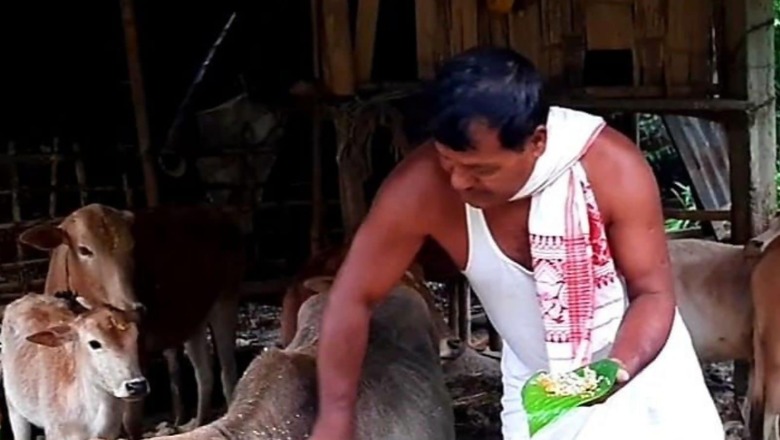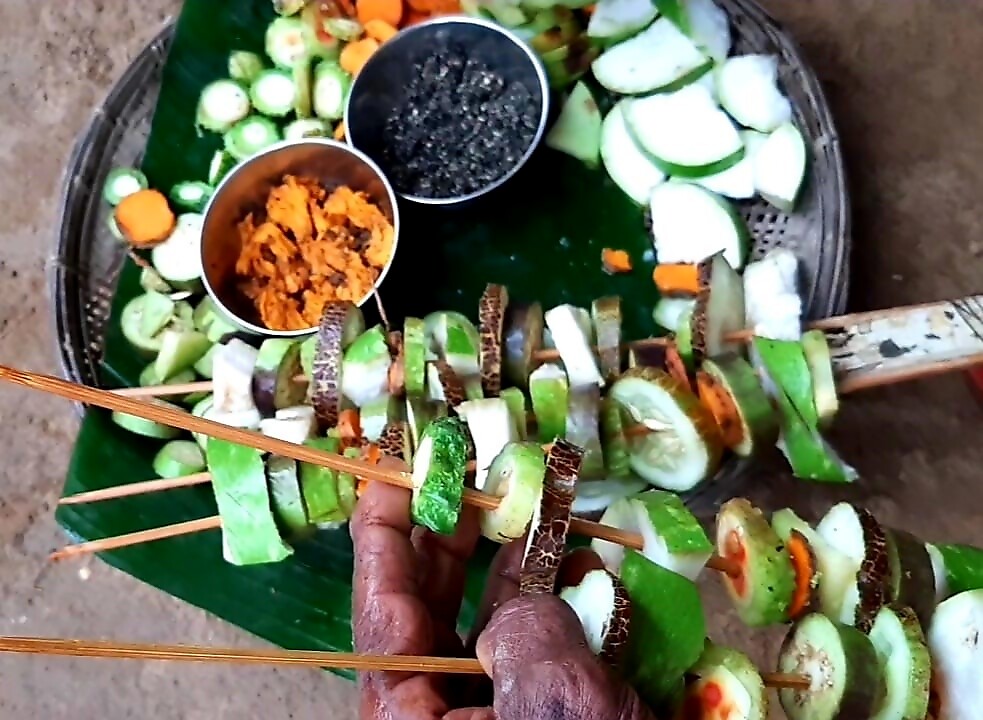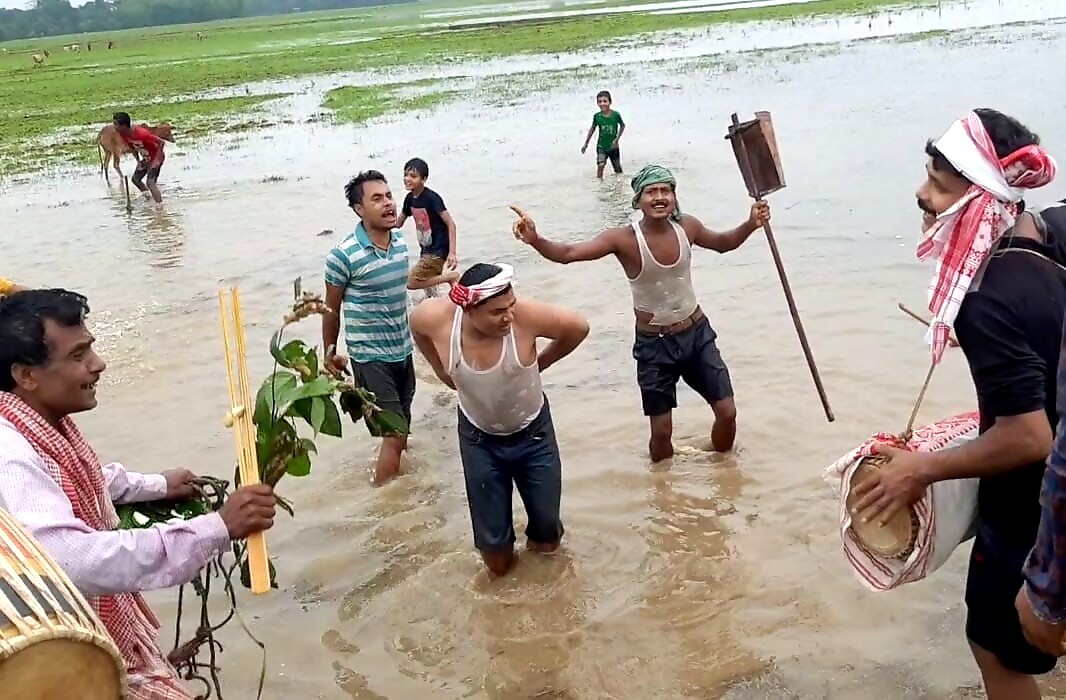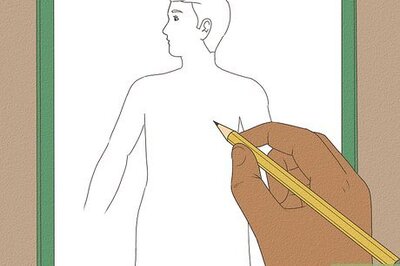
views
Incessant rains on the eve of Assamese New Year have brought down the temperature and filled up the almost dry water bodies, making them perfect for the cattle to have their day out on Goru Bihu.
On the first day of the seven-day-long Bohag Bihu, it is the cattle, which are given a royal treat, as the day is celebrated as the Goru Bihu or Cow Bihu in the agrarian Assam. A generous bath, an oil and turmeric massage, lavish food and a new attire are offered to the cattle on this day as a mark of gratitude for their tireless service.
On Goru Bihu or Cow Bishu, which marks the first day of the advent of spring and the last day of the Assamese calendar year, locals head towards the nearest river or pond with their cattle at the crack of the dawn.
Right after the generous bath, near the village riverside where all gather with their cattle, the cows are massaged with turmeric and neem paste — a herbal treat for the animals, who are ubiquitous in the lives of Assam’s people. After this, the owner feeds their animals with best of vegetables available, in which bottle gourd and bitter gourd are must.

“Lau kha begen kha, dine dine barhi ja, Tur mare hour, bapere hour, toi hob or bor gour (Have these gourd and eggplant and grow big. Your parents are small but you grow into a big one).”
After the customary bathing and feeding are done, the people sing and dance Bihu with their cattle and then the animals are left for grazing. It’s a no-work day for the cattle on Goru Bishu.
Back home, the cattle sheds are cleaned, fumigated and old ones are repaired too. When the cattle return by the evening, they are welcomed religiously into the sheds — with fumes, prepared from local herbs sprayed all over, cows harnessed with new jute ropes, symbolising a new attire. After the day is completed, the cattle prepare themselves for the ploughing season, which marks the beginning of the cultivation and advent of spring.
The ‘Goru Bihu’ also sets the tempo for the week-long Bohag Bihu, the state festival of Assam. On April 15, the people of the state will soak themselves in the festive mood of Manuh Bihu where they will pay their regards to the elders with the traditional Gamocha (Assamese towel), dine in all fineries, gather in open fields to sing and dance on Bihu songs.
A festival that symbolises the exuberance of nature, youngsters in their best of attire display their vigour as they participate in the festivities of Rongali. It is around this time of the year when in earlier days the girls would find their match in the Bihu grounds and eventually elope to be a couple for life.
The shrill of the cuckoo, the titillating Bihu songs to the beating of ‘dhols’ and cymbals accompanied by the mellifluous notes of bamboo flutes and buffalo horns herald the festival of Rongali or Bohag.

Manuh (people) Bihu, as the name suggests, is mainly devoted to performing ceremonies for the welfare of people. Youngsters pay respects to the elders and visit each other to wish for a prosperous new year and exchange gifts, transcending all religious and class barriers bringing people together in a free and uninhabited manner. Manuh Bihu also means titillating Bihu dance.
Youths dressed in the traditional attire, a ‘muga chador mekhala’ for the women and ‘dhoti gamucha’ for the men folk. The moves of the invigorating Bihu dance are such that they bring out the youthful spirit in everyone. Pelvic and chest movements dominate the Bihu dance as the youths display their vigour to attract each other in the festival. The foxtail orchid, which blooms in abundance this time of the year, the shrill of the cuckoo and beat of the drum, fills the atmosphere of the state with romance and vigour.
Bohag Bihu greetings to everyone! pic.twitter.com/W5UWbLJhiF— Narendra Modi (@narendramodi) April 14, 2022
The third day of Bihu is sometimes called the Gosain Bihu and is set apart for religious services. Games and sports, special Bihu songs and dances, and fairs are part of the Bihu celebrations. These Bihu songs are beautiful specimens of folk poetry set to lilting music and swinging rhythm.
As the legendary bard of the state, Dr Bhupen Hazarika rightfully said, “Bihu is not just a mere festival, it is the rhythm of the state, a lifeline of its people”.
‘Bohag Bihu’ today has translated itself as the identity of Assam’s people.
Read all the Latest News India and Breaking News here

















Comments
0 comment